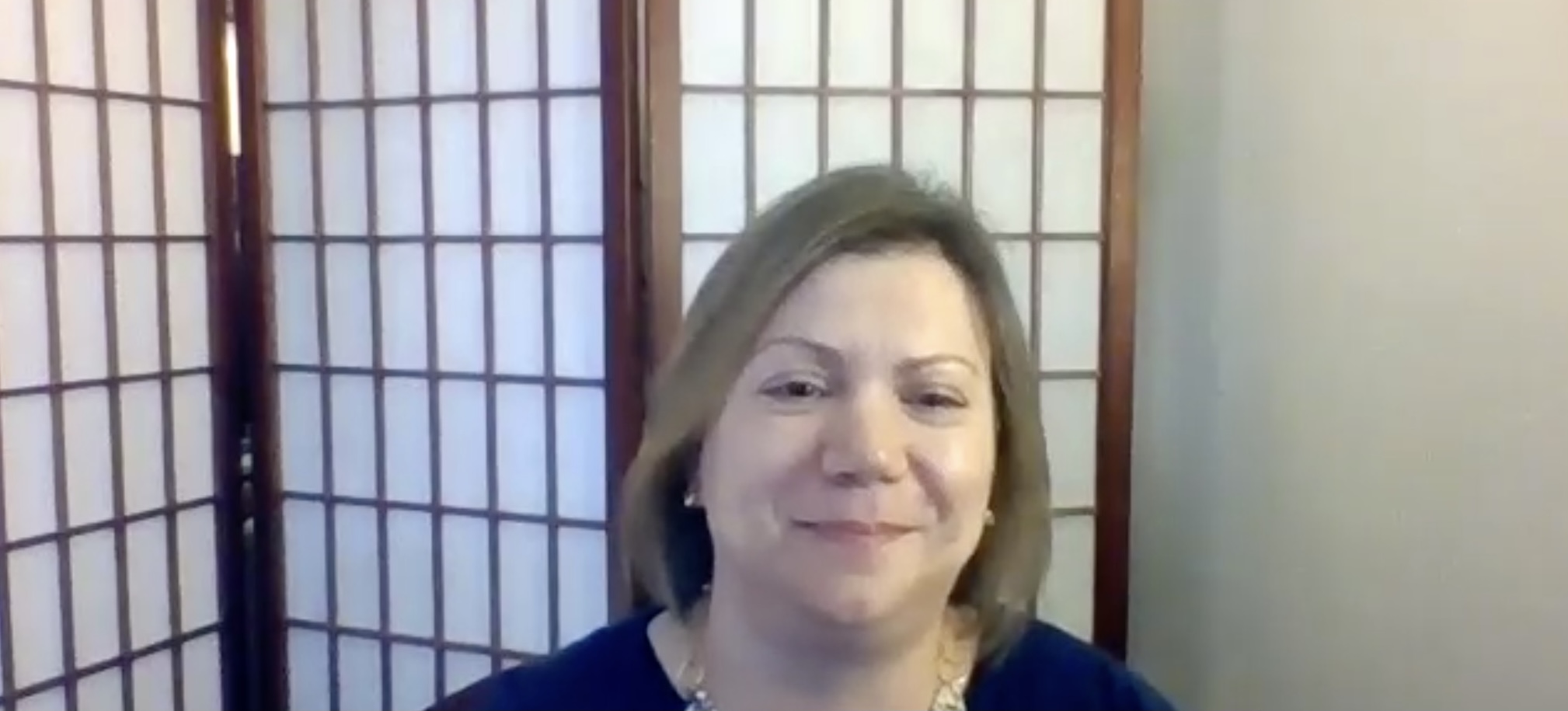The University of the District of Columbia (UDC) television studios, UDCtv, provides the Washington, DC area with programming geared to foster health, political and environmental awareness. Dr. Katherine Marshall Woods hosts this UDCtv show entitled, “A Healthy Mind” featuring guests from a myriad of professions lending information to promote healthy living and lifestyles. Entries entitled: “A Healthy Mind” share these interviews.

On August 20th, 2020, Dr. Jennifer Kahler was invited onto the show to discuss the symptoms of dissociative disorders and how dissociation affect daily functioning. Dr. Kahler has devoted over a decade in psychology. Currently, Dr. Kahler has a private practice in Fairfax, Virginia where she focuses on adolescents and adults who struggle with relationship issues, depression, anxiety, and trauma issues including post-traumatic stress disorder and dissociative disorders. Furthermore, Dr. Kahler has published and presented on the diagnosis and treatment of complex trauma disorders, including Dissociative Disorders as well as provided workshops on this clinical area at psychiatric hospitals and programs throughout the east coast.
. . . . .
Dr. Marshall Woods: “Hello, my name is Dr. Katherine Marshall Woods, your host for this episode of A Healthy Mind. The purpose of this show is to educate and inform the public regarding mental health, from emotional disorders to social policies that affect healthy minds.”
“Dissociative Disorders involve symptoms of feeling a lack of continuity between thoughts, memories, surroundings, actions, and one’s identity. People with dissociative disorders escape reality in ways that are involuntary and can be unhealthy causing problems in their daily functioning. Dr. Jennifer Kahler is here with us, who’s a licensed clinical Psychologist, and an expert in dissociative disorders. She has published and presented on the diagnosis and treatment of complex trauma disorders, which includes dissociative disorders as well as provided workshops in this clinical area of this expertise at psychiatric hospitals and programs throughout the east coast.”
“Please welcome, Dr. Jennifer Kahler. Hi Dr. Kahler, how are you?”
Dr. Kahler: “I’m doing well. Thanks for having me on.”
Dr. Marshall Woods: “Oh, I’m so happy to have you on. I did not mention previously, you were a colleague of mine, at a mental health hospital. Can you tell us a little bit about all the wonderful things that you do within our community?
Dr. Kahler: “Thank you, sure. So, I’m currently the director of the counseling center at George Mason University in Fairfax, Virginia. Prior to that, I have been director of psychology at a psychiatric hospital, in DC, which is how I know you; and I was previously at Veterans Affairs Medical Center. And, I also worked in an inpatient psychiatric trauma program for many years. Additionally, I also worked at a counseling center for New York University, in the Middle East in Abu Dhabi, in the United Emirates. So, I’ve been around, its interesting to be able to talk about dissociative disorders today.
Dr. Marshall Woods: “What made you interested in dissociative disorders?
Dr. Kahler: “I did a post-doctoral fellowship in trauma disorders actually. And, it is a fascinating area of mental health. It’s also one area of mental health that is truly treatable by psychotherapy. Medication can be helpful for some symptoms of it, but it’s truly about the psychotherapy relationship and in that way as a psychologist can find it to be very rewarding, to see the healing process that can take place.
Dr. Marshall Woods: “Mhmm, now can you tell us a little bit about what dissociative disorders are exactly.”
Dr. Kahler: “Sure. Well first of all, they’re very poorly diagnosed and unrecognized. Unfortunately, I don’t think that a lot of mental health professionals get significant training in this area. And, they are dissociative disorders are a category of disorders that develop out of trauma. So, it is, basically the way the mind protects one from the intensity of feelings, memories, thoughts related to traumatic experiences. So, we see this a lot in adults, and children who have experienced chronic childhood abuse and trauma, where they have gaps in the memory of their life because their mind has protected them from remembering things. And, also we even see this in people that have experienced natural disasters or really horrific accidents where they can’t always remember all the details of what may have occurred. And again, it it’s a way for the mind to protect them from remembering some of the more painful aspects of what they experienced.
Dr. Marshall Woods: “I remember when I first met you and I actually had the privilege to sit in on one of your presentations regarding dissociative disorders, and you talked about really that there’s a spectrum when it comes to the symptoms that are related to this disorder. Can you describe that for us?”
Dr. Kahler: “Sure. I like to talk about dissociation on a spectrum because I think it helps people to really understand this complex experience of dissociation in a different way. So, the way I describe it is if you imagine a spectrum number one to number ten. One is truly the normal everyday trancelike experiences that we all have, so things like highway hypnosis. You’ve driven from home to work so many times that you don’t even really think about it, you just drive. Or, you’re at a traffic light and you start to think about your grocery list, and the next thing you know the light has turned green and someone’s honking your horn. Or, you become so absorbed in a book you kind of loose touch with kind of where you are, or hear the sound of the doorbell because you’re so absorbed in that book. So those are very normal experiences that we all have, and that’s really a one on the spectrum…
Please visit https://youtu.be/e_5h3y-Iz7M to view the remaining portion of this interview.

